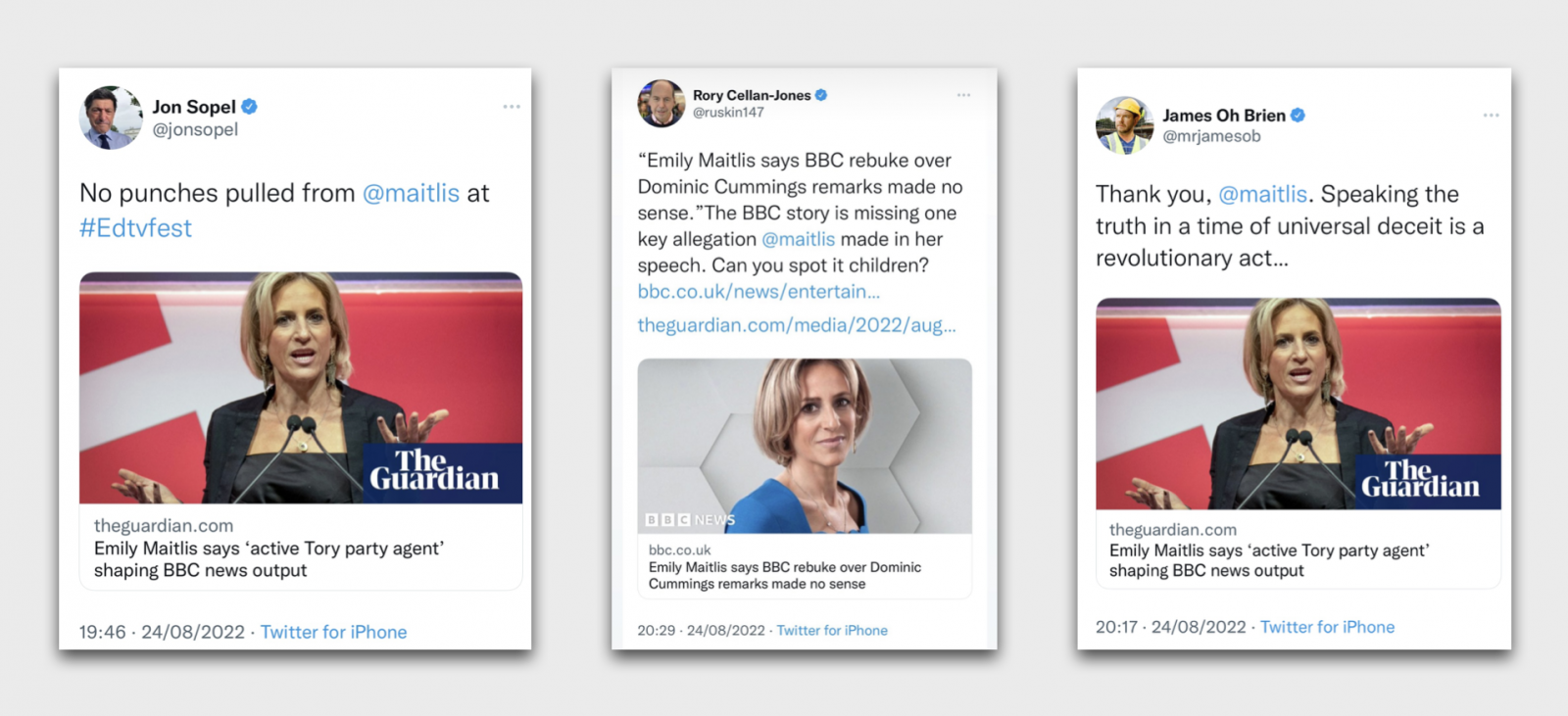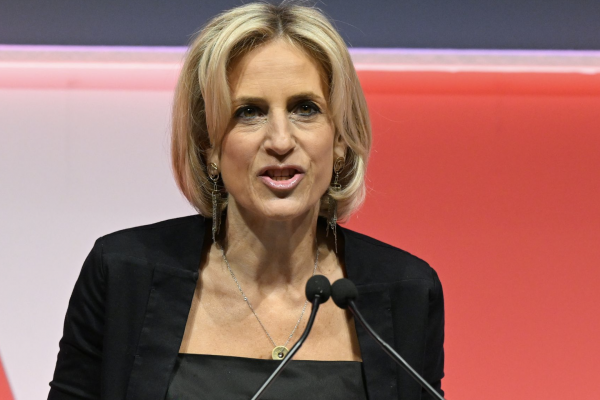Former high profile BBC journalist criticises corporation’s approach to impartiality
Former BBC Journalist & Presenter, Emily Maitlis, has criticised the corporation’s approach to accurate and impartial reporting. Speaking at the Edinburgh TV Festival on Wednesday evening, where she delivered the keynote MacTaggart Memorial Lecture, Maitlis said that an “active agent of the Conservative party… now sits, acting as the arbiter of BBC impartiality.”
The former Newsnight Presenter left the BBC at the end of last year, after being accused of showing bias against Dominic Cummings, the Prime Minister’s most senior advisor, when she factually reported that he had broken the government’s own lockdown rules during the coronavirus pandemic.
Maitlis says that the corporation moved unusually quickly, and without due process, in responding to the complaints against her, in a response that seemed dedicated to reassuring the government that the matter was in hand.
“Put this in the context of the BBC Board,” said Maitlis,“ whose speech you can view in full via the Sky News YouTube channel here. “Another active agent of the Conservative party – former Downing Street spin doctor [Robbie Gibb] and former advisor to BBC rival GB News – now sits, acting as the arbiter of BBC impartiality.”
Brexit bias
When it comes to Brexit in particular, the BBC – and indeed most media outlets in the country – appear to have lost their moxie when it comes to telling the truth. It’s a subject that for many journalists remains taboo today, but as Maitlis testifies, has been at odds with reality since the outset.
“We were trying to offer our viewers both sides of a fiendishly difficult debate. That intention was right, but we still got it wrong. We fell into what we might call the Patrick Minford paradigm.”
“In other words, it might take our producers five minutes to find sixty economists who feared Brexit, and five hours to find a sole economic voice who espoused it. But by the time we went on air, we simply had one of each! We presented this unequal effort, to our audience, as if it was balance. It wasn’t.”
Neil Armstrong and the moon landing deniers
The quintessential illustration of this trend is inviting moon landing deniers onto debate those that have actually set foot on the moon, and it would be wrong to assume that this misjudgement is solely the preserve of the BBC.
It’s an institution after all, that we continue to celebrate here on FIPP.com, not least because of the pioneering work it is doing in the DEI space with its 5050 Project, and the corporation’s efforts to bring accurate reporting to the Russian people at a time of extreme fake news in the country.
But in the age of social, where ‘alternative facts’ are celebrated alongside the cult of the individual, accurate journalism has, sadly in far too many cases, simply fallen by the wayside.
‘Balanced’ reporting is now often relegated to the role of merely reflecting the full spectrum of public opinion, however batshit that may be. Whereas true journalism should, on the contrary, be geared towards sifting out the fantasy and verifying the facts – the former, we can leave to Tolkien.
Support from other high profile UK journalists
While there have previously been rumblings about the BBC’s approach to impartiality – or lack thereof – this latest intervention from Maitlis feels like an important one. This is not least because of the calibre of journalistic colleagues who immediately rushed to the Twitter to publicly support her.

Jon Sopel – former BBC North America Editor, and now co-Host of a podcast with Maitlis on Global, simply retweeted the original Guardian story on the speech and said “No punches pulled from @maitlis at #Edfest”
James O’Brien, who we have interviewed ourselves here before on FIPP.com, did similar saying: “Thank you, @maitlis. Speaking the truth in a time of universal deceit is a revolutionary act…”
Rory Cellan-Jones, who worked at the institution for 40yrs, went a step further. In a now deleted tweet, the former BBC Technology Correspondent referenced the BBC’s own initial story on the subject and said: “Emily Maitlis says BBC rebuke over Dominc Cummings remarks made no sense”. The BBC story is missing one key allegation @maitlis made in her speech. Can you spot it children?’
(At the time of writing, the BBC article in question – which you can read here – does now contain passing reference to Mr Gibb, Theresa May’s former Director of Communications.)
It’s a serious intervention from a high profile name in both UK and global journalism, and wherever the story goes next, we’ll keep you updated impartially on the FIPP.com.
[Main image: Live speech feed via Sky News]









